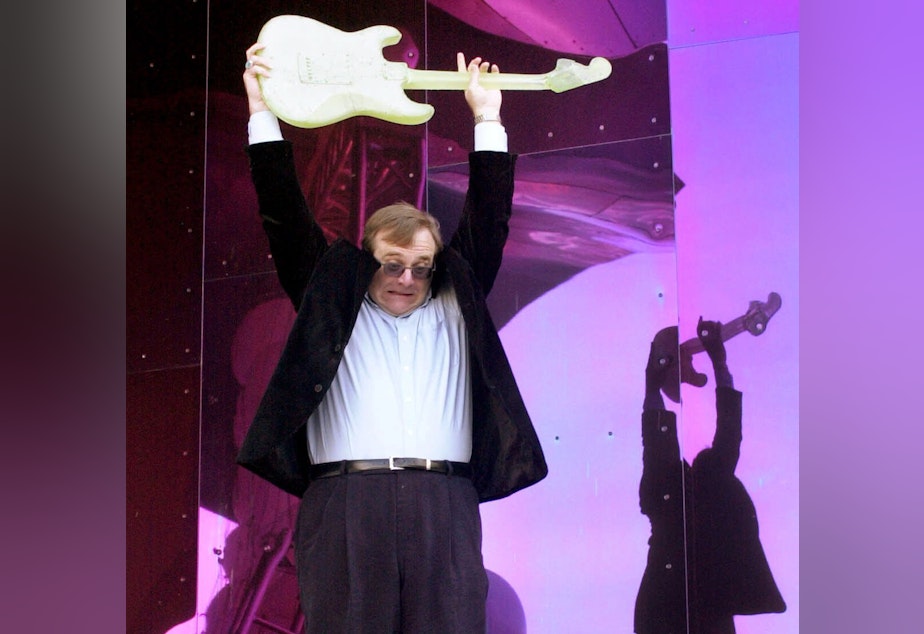The creative genius of Paul Allen and how it extended beyond computers

Paul Allen led a full life: computers, science, culture, sports... and music.
He was a huge Jimi Hendrix fan, built Seattle's Experience Music Project and got to share the stage with his rock and roll idols.
He also wrote and recorded his own songs, often with Nashville-based musician John Bohlinger.
Bohlinger spoke with KUOW’s Angela King about Allen’s music.
King: The name of Paul Allen’s group was the Underthinkers. What was that about?
Well, Paul and I, in the course of two years we wrote over 200 songs, and we would often come up when we were writing, 'like oh man we're overthinking this. Let's be under thinkers.' And so it was one of those kind of just clever word play things that he would often do.
Sponsored
How did you wind up playing in a band with Paul Allen?
Well I'm really not sure. I had a pretty good month where I was a music director at a couple different TV shows and so I guess I came up on the radar when they were looking for a music director.
They flew me out and we jammed a little bit and then Paul invited me on a trip to Greece. And so we did this trip and a few more, and then after about a half a year he brought me on full time where we wrote a ton of songs and worked on this album. And it's just an amazing experience.
You sent us one of the songs that you wrote together. Tell us about it.
It was “Rodeo” or “This Ain’t Your First Rodeo,” that Chrissie Hynde recorded actually on Paul's record. I was listening to a bunch of old catalog last night and that one just really struck me. Paul was a empathetic guy and had a big heart, and something about that 6/8 feel, just a little sweet and sad, just fit.
It has a western feel kind, of a country feel, I think we may have been in Namibia at the time. That day looking out, it was just this great expanse of the big empty. And I think that's maybe what hit him.
Sponsored
It's been said that Quincy Jones once said that Paul Allen played like Jimi Hendrix. Can you second that?
Well here's the thing. The currency of music or any art is ideas. And Paul had great ideas. I mean clearly that was his contribution the world. Now as far as being a virtuoso, as he said, Paul's a musician with a really good day job. He didn't have the time to put in his 10,000 hours like the rest of us. So he wasn't a virtuoso but he was a really solid guitar player.
But what made him great were his ideas, because he would go places that other people wouldn't go. Which I think was probably the secret to his programming and philanthropy and business acumen and everything. He just had great ideas and it really translated into music.
Click on the audio link to listen to the whole interview.





